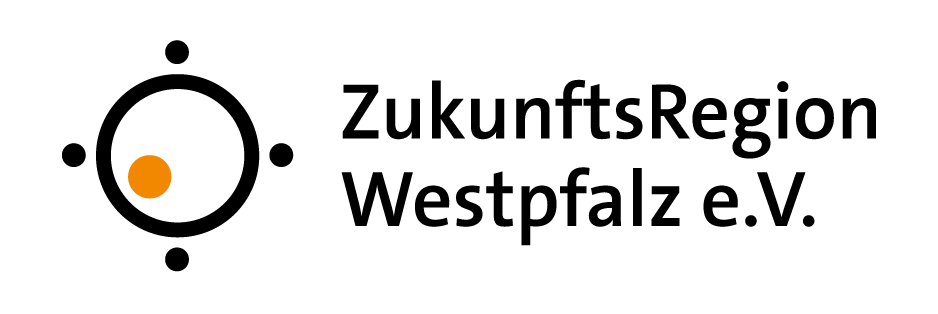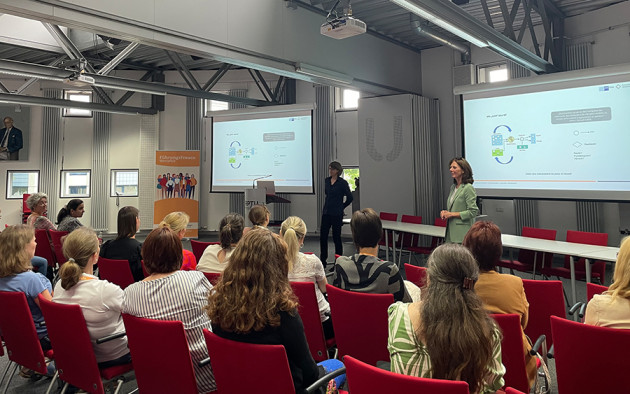The 6th network meeting of FührungsFrauen Westpfalz was dedicated to a topic that is constantly present in our everyday lives and will become increasingly important in the future: Artificial intelligence.
The event, which took place in the rotunda of the RPTU, was opened by Jutta Metzler (ZRW board member and IHK vice president), who introduced the participants to the topic with a definition of AI: AI is a branch of computer science. It imitates human abilities such as logical thinking, learning, planning and creativity. It is therefore a technology that imitates cognitive abilities that previously only humans were capable of.
We encounter AI all the time - in our personal lives with the voice assistants Alexa and Siri, with movie and music suggestions from Netflix and Spotify, with navigation in the car. But also in security, such as facial recognition, and of course in our everyday working life. In some cases, AI support is so commonplace that it is hardly perceived as AI.
The questions to the keynote speaker, Ms. Tatjana Legler, Deputy Head of the Department of Machine Tools and Control, were therefore: Since when has research been concerned with AI? What data does AI use? Where are the risks and where are the opportunities?
In her presentation, Ms. Legler gave the participants a clear insight into all these questions. It is worth mentioning that the topic of AI has been researched since 1943. It was also exciting to learn how the learning processes of AI work. This requires a closer look at the three sub-areas:
1. (artificial) intelligence
2. machine learning, which gives computers the ability to learn without having to be explicitly programmed,
3. deep learning, an algorithm that can learn indefinitely
An important aspect in answering the question of what data the AI is using is that the data is sourced from where it is available. This can be platforms like Facebook or Reddit, for example. There is a risk of unfiltered content where the AI does not recognize sarcasm or irony. And this is where the problem lies, because the AI is delivering results based on what has been fed in. It is therefore necessary to differentiate, especially when it comes to supposed "knowledge". This is not easy, however, when you look at what real AI-generated videos look like. In the production sector, where a machine is programmed, it is more likely that the result "data in, result out" is correct. This is because it is possible to check or adjust directly on the workpiece.
In medicine, AI is a great help and further research is more than justified. However, this is an area that requires special sensitivity. The smallest mistake can have fatal consequences. The same goes for autonomous driving. Here, the AI system must learn to interpret data from different countries: Road courses, traffic signs, the different driving styles of road users, and many other factors. All of this must be processed simultaneously and in real time.
The ChatGPT program, which can be used to write entire essays, is both a risk and an opportunity. In particular, it is clear that students often use ChatGPT to do their schoolwork. The program should be used as a learning tool, not to do all the work.
The lively discussion that followed the fascinating insights showed that the topic was of great interest. An exciting round of questions deepened the insights and certainly encouraged each and every participant to further explore the topic. To summarize the event in the words of Jutta Metzler: "It is impossible to imagine our everyday lives without AI. How we deal with it, how we use it wisely, is up to us, at least for the time being.
The fact is that we have taken up an explosive topic that we should approach with a positive attitude, but also with a high degree of sensitivity.



